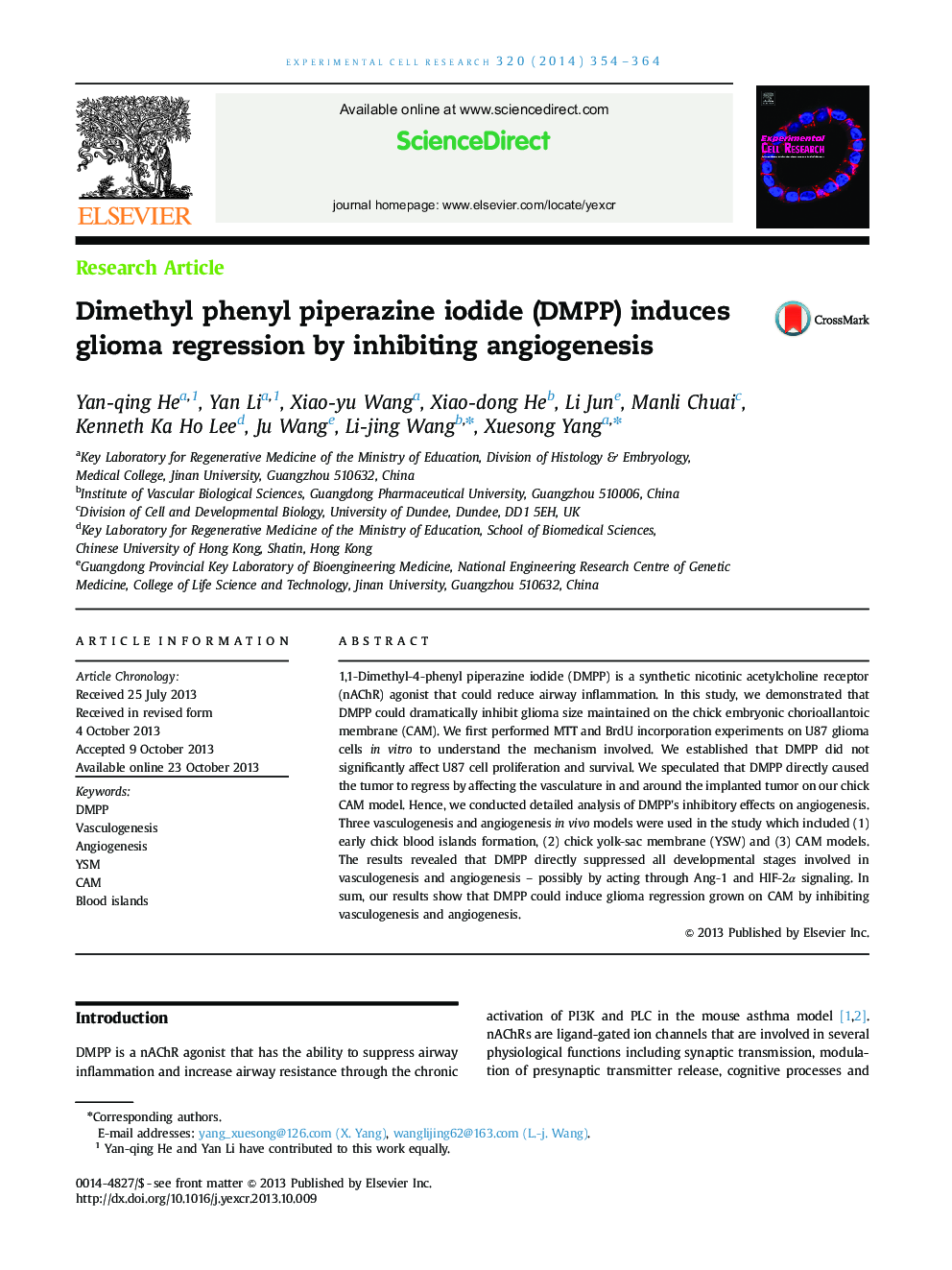| Article ID | Journal | Published Year | Pages | File Type |
|---|---|---|---|---|
| 2130396 | Experimental Cell Research | 2014 | 11 Pages |
●We demonstrated that DMPP inhibited the growth of glioma cells on chick CAM.●DMPP did not significantly affect the proliferation and survival of U87 cells.●We revealed that DMPP suppressed vasculogenesis and angiogenesis in chick embryo.●Angiogenesis in chick CAM was inhibited by DMPP via most probably Ang-1 and HIF-2α.●DMPP could be potentially developed as an anti-tumor drug in the future.
1,1-Dimethyl-4-phenyl piperazine iodide (DMPP) is a synthetic nicotinic acetylcholine receptor (nAChR) agonist that could reduce airway inflammation. In this study, we demonstrated that DMPP could dramatically inhibit glioma size maintained on the chick embryonic chorioallantoic membrane (CAM). We first performed MTT and BrdU incorporation experiments on U87 glioma cells in vitro to understand the mechanism involved. We established that DMPP did not significantly affect U87 cell proliferation and survival. We speculated that DMPP directly caused the tumor to regress by affecting the vasculature in and around the implanted tumor on our chick CAM model. Hence, we conducted detailed analysis of DMPP's inhibitory effects on angiogenesis. Three vasculogenesis and angiogenesis in vivo models were used in the study which included (1) early chick blood islands formation, (2) chick yolk-sac membrane (YSW) and (3) CAM models. The results revealed that DMPP directly suppressed all developmental stages involved in vasculogenesis and angiogenesis – possibly by acting through Ang-1 and HIF-2α signaling. In sum, our results show that DMPP could induce glioma regression grown on CAM by inhibiting vasculogenesis and angiogenesis.
